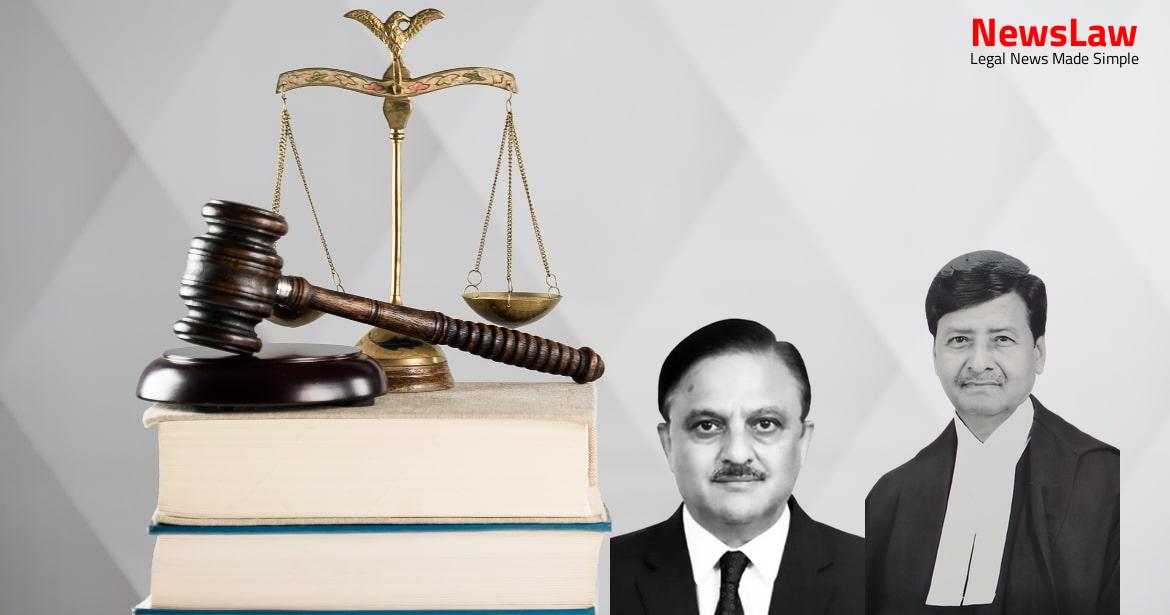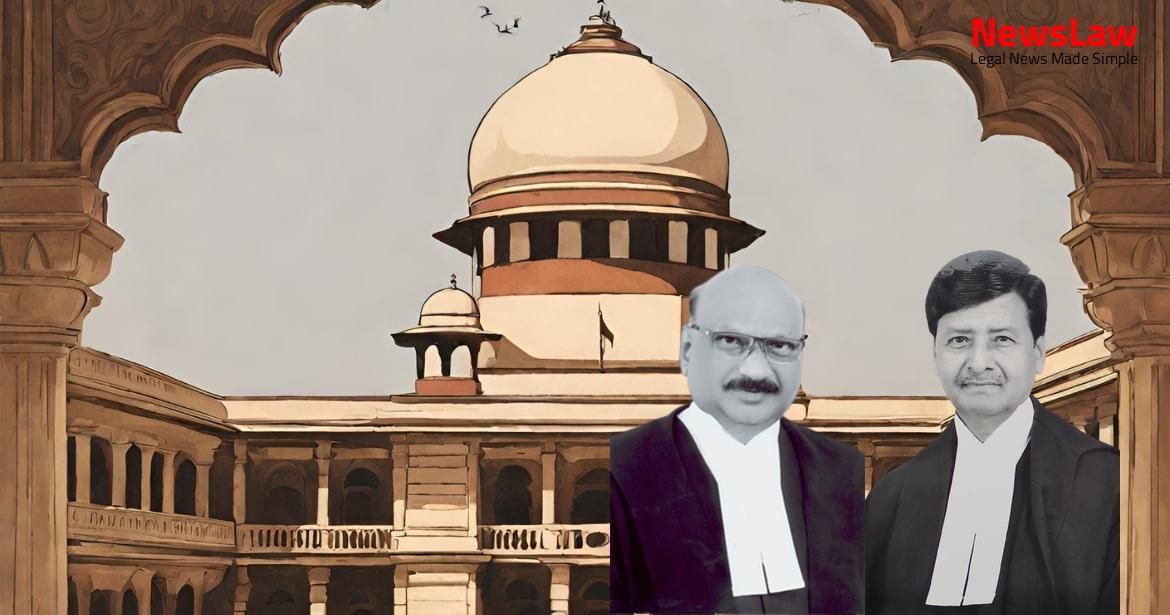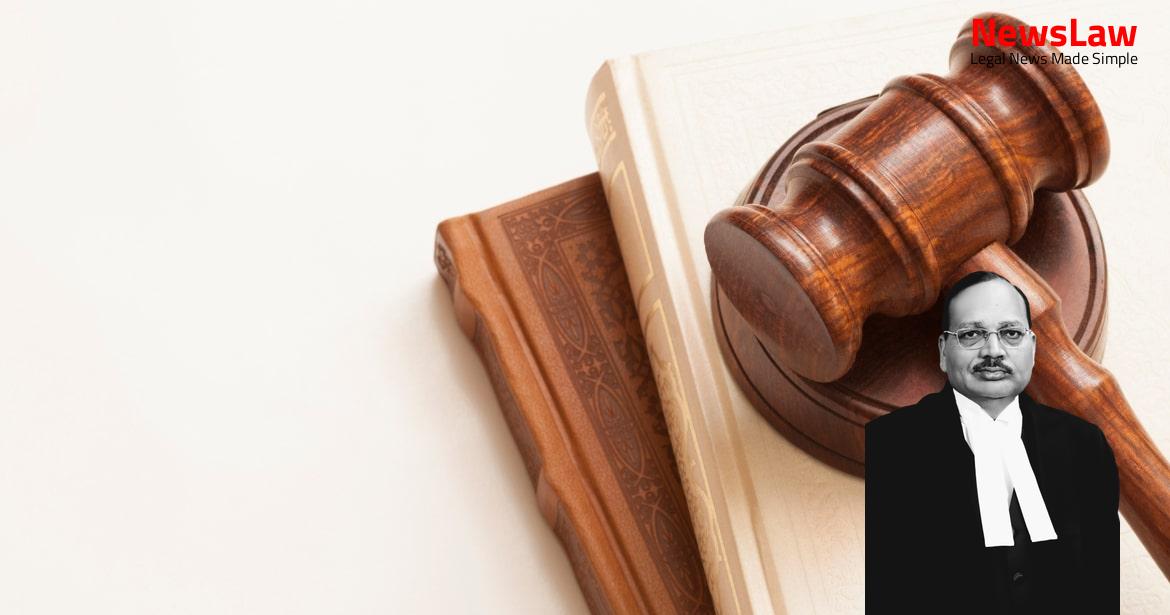Explore the complexities of court jurisdiction in executing foreign decrees in India as analyzed by the High Court of Delhi. The case delves into the interpretation of Section 44A of the Code and the pecuniary limits defining the court’s authority. A critical examination unveils the significance of the High Court’s original civil jurisdiction under Section 5(2) of the Act 1966, shaping the landscape for enforcing foreign decrees. Dive into the legal nuances and implications of this jurisdictional conundrum in the Indian legal system.
Facts
- The appellant/decree holder challenges the judgment of the Division Bench of the High Court of Delhi dated 1 July, 2014.
- The appellant obtained a money decree of a foreign Court on 7 February, 2006, exceeding Rs. 20 lakhs, which has not been executed for 16 years.
- The foreign Court, a superior Court of a reciprocating territory, granted a money decree of US $ 5,824,564.74 to the appellant on 7 February, 2006.
- The respondent did not appeal against the judgment and decree dated 7 February 2006, making it final.
- The appellant filed a petition for execution of the money decree in the High Court of Delhi on 27 April, 2006, where the decretal amount now may be approximately Rs. 99 crores.
- The appellant seeks clarity on the forum for executing the foreign money decree.
- The respondent-judgment debtor challenged the judgment of the learned Single Judge of the High Court of Delhi dated 29 November, 2013 before the Division Bench.
- Respondent filed reply to the execution petition on 17 January 2007 raising objections as per Section 13 of the Code.
- Further objection raised regarding jurisdiction of the High Court of Delhi to entertain execution petition under Section 44A of the Code.
- Learned Single Judge overruled preliminary objections and held that High Court of Delhi has exclusive jurisdiction based on the value of the money decree of the English Court.
- Judgment dated 29 November, 2013 decided the execution petition, directing the judgment debtor to deposit original title deeds of Sahibabad property.
Also Read: Admission Deadline Adherence in Medical Courses
Issue
- The singular issue was the jurisdiction of the High Court of Delhi in executing the money decree dated 7 February, 2006 of the English Court.
- The court decided to confine the examination to this specific issue.
- The parties were heard in relation to the jurisdiction matter.
- After deliberation, the court concluded that Section 44A of the Code grants foreign decree holders the right to enforce their decrees in India independently.
Also Read: From Nominee to Disqualified: Supreme Court Scrutinizes Age Evidence, Declares Election Invalid
Arguments
- The High Court of Delhi has original civil jurisdiction, subject to pecuniary limits under Section 5(2) of the Act 1966.
- The pecuniary jurisdiction of a civil court must not exceed what is prescribed under the Act, making the High Court the principal civil court if it does.
- The judgment and decree from the UK are recognized by Section 44A of the Code, and the High Court of Delhi is the appropriate court for execution petitions.
- Dr. Abhishek Manu Singhvi argues that the jurisdiction for executing a foreign court’s decree in a reciprocating territory lies with the High Court of Delhi if the value exceeds the pecuniary limits set in the Act 1966.
- Section 44A is an independent right for a foreign decree holder to enforce its decree in India.
- Section 44A’s scheme is different from domestic execution under Section 39(3) of the Code.
Analysis
- The High Court of Delhi has exclusive jurisdiction for executing a foreign decree under Section 44A of the Code.
- Section 5(2) of the Act 1966 empowers the High Court of Delhi to exercise original civil jurisdiction for suits exceeding specified pecuniary limits.
- Certain jurisdiction has been shifted from the District Court to the High Court of Delhi for suits exceeding pecuniary limits as notified under Section 5(2) of the Act 1966.
- The term ‘District Court’ in Section 44A of the Code refers to the local limits of the jurisdiction of the principal civil Court, which may include the High Court’s ordinary original civil jurisdiction based on pecuniary value.
- Section 44A of the Code allows for the execution of decrees from foreign Courts in reciprocating territories, with specified conditions and exceptions under Section 13 of the Code.
- The pecuniary limits of the Civil Court define its jurisdiction, and for the execution of a foreign decree, the District Court or the High Court in its ordinary original civil jurisdiction may be competent.
- The expression ‘District Court’ in Section 44A must be interpreted based on the pecuniary limits and the true effect of the term defined under Section 2(4) of the Code.
- Section 24 of the Punjab Courts Act 1918 designates the Court of District Judge as the principal civil Court of original jurisdiction in Delhi.
- A certificate from a superior court in a reciprocating territory is essential for executing foreign decrees in India, subject to satisfaction or adjustment criteria.
- The pecuniary limits defined by the High Court under Section 5(2) of the Act 1966 determine the jurisdiction of the District Judge for matters like attachment of property.
- The appeal emphasized on the necessity for expeditious execution of a foreign decree, stating the importance of timely resolution by the Division Bench.
- Section 44A of the Code allows for the execution of decrees passed by superior courts of reciprocating territories in India.
- The decree must be filed in a District Court for execution, along with a certificate from the superior court stating the extent of satisfaction or adjustment of the decree.
- The provisions of Section 47 apply to the execution proceedings, and the District Court can refuse execution if the decree falls within the exceptions specified in Section 13.
- The term ‘reciprocating territory’ refers to countries or territories declared as such by the Central Government.
- The term ‘superior courts’ in reciprocating territories refers to courts specified in the notification.
- The High Court of Delhi has limited ordinary original civil jurisdiction in suits exceeding Rupees twenty lakhs.
- The jurisdiction for executing a foreign decree lies exclusively with the District Court under Section 44A, and not with other courts.
- The High Court in Delhi cannot entertain a petition for executing a foreign money decree that exceeds Rs. 20 lakhs, as per Section 44A of the Code.
Decision
- The application is allowed.
- A direction is issued to the JD to deposit the original title deeds of the property, land measuring 18774 sq. yds. at 8/7, Site-IV, Sahibabad, Industrial Area, Sahibabad, District Ghaziabad in the Court within two weeks.
- When deposited, the title deeds shall be kept in a sealed cover by the Court.
Case Title: MESSER GREISHEIM GMBH (NOW CALLED AIR LIQUIDE DEUTSCHLOAND GMBH) Vs. GOYAL MG GASES PRIVATE LIMITED (2022 INSC 113)
Case Number: C.A. No.-000521-000521 / 2022



